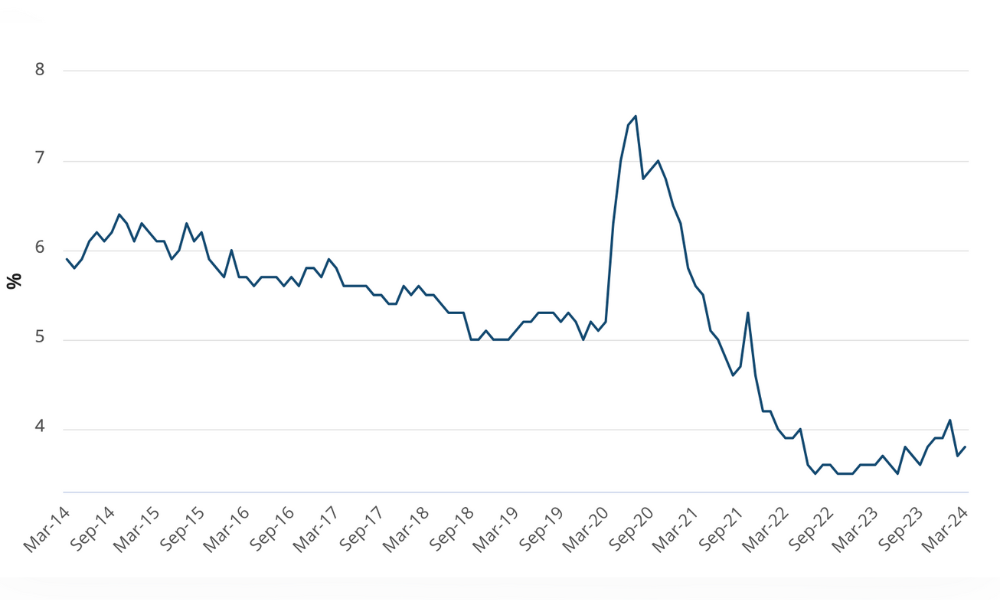Ciaran Foley, Head of Frazer Jones, Australia, discusses the potential impacts of gender biases in business
I’ve been thinking about writing this article for a little while now. I’ve been hesitant to do so because I’m conscious that this article would be much better written by a female who would undoubtedly be able to draw upon work and life experiences that I can’t as a male, but here goes.
In over 15 years of working in people and recruitment related roles, I’ve met hundreds of exceptional HR professionals. They are all passionate about how HR can positively impact on an organisation. The vast majority are also well aware that a diverse workforce will always offer more potential for growth and opportunity than a one-dimensional workforce.
The HR profession has paved the way for executive gender diversity and making senior leadership roles more appealing to women.
Across the ASX Top 50 companies, around 75% of HR heads are currently female. Interestingly, a similar percentage is reflected in Frazer Jones’ Global HR Survey, which sought the opinion of nearly 3,500 HR professionals around the world: 70% of the respondents in Australia were female, compared to 62% globally.
It can’t be any coincidence that the number of senior female HR leaders are an inspiration to young females entering the workforce – and that is a good thing. It is a shame that other business units don’t appear to have the same number of female role models as HR does.
For many organisations, the diversity discussion has progressed past gender; however, given that HR comprises higher numbers of women than other functions, this is a gender issue that needs addressing.
I have personally been instructed to run search assignments for senior HR professionals where it has been strongly suggested that a female would be a good fit for the role. In every case, the reason behind a preference for a female was the lack of female representation on the leadership team. Nonetheless, my role is to source the strongest shortlist, regardless of gender.
Business leaders need to consider the gender bias in HR, the gender split of other business units, and start to take a more aggressive approach to the recruitment of female leaders into roles which have been traditionally held by males. If this doesn’t happen, I wonder whether HR is itself in danger of becoming one-dimensional.
Ironically, when we are asked to recruit more junior HR roles, if gender is ever referenced it will usually be along the lines of “We would love to hire a guy into this role as there are so many females in the team…” – and therein lies the challenge for HR.
More and more females are choosing to enter and build careers in HR, whereas more and more men are choosing to pursue different career paths. Given the gender bias across different business units, it is easy to see why both parties are making these decisions.
In over 15 years of working in people and recruitment related roles, I’ve met hundreds of exceptional HR professionals. They are all passionate about how HR can positively impact on an organisation. The vast majority are also well aware that a diverse workforce will always offer more potential for growth and opportunity than a one-dimensional workforce.
The HR profession has paved the way for executive gender diversity and making senior leadership roles more appealing to women.
Across the ASX Top 50 companies, around 75% of HR heads are currently female. Interestingly, a similar percentage is reflected in Frazer Jones’ Global HR Survey, which sought the opinion of nearly 3,500 HR professionals around the world: 70% of the respondents in Australia were female, compared to 62% globally.
It can’t be any coincidence that the number of senior female HR leaders are an inspiration to young females entering the workforce – and that is a good thing. It is a shame that other business units don’t appear to have the same number of female role models as HR does.
For many organisations, the diversity discussion has progressed past gender; however, given that HR comprises higher numbers of women than other functions, this is a gender issue that needs addressing.
I have personally been instructed to run search assignments for senior HR professionals where it has been strongly suggested that a female would be a good fit for the role. In every case, the reason behind a preference for a female was the lack of female representation on the leadership team. Nonetheless, my role is to source the strongest shortlist, regardless of gender.
Business leaders need to consider the gender bias in HR, the gender split of other business units, and start to take a more aggressive approach to the recruitment of female leaders into roles which have been traditionally held by males. If this doesn’t happen, I wonder whether HR is itself in danger of becoming one-dimensional.
Ironically, when we are asked to recruit more junior HR roles, if gender is ever referenced it will usually be along the lines of “We would love to hire a guy into this role as there are so many females in the team…” – and therein lies the challenge for HR.
More and more females are choosing to enter and build careers in HR, whereas more and more men are choosing to pursue different career paths. Given the gender bias across different business units, it is easy to see why both parties are making these decisions.
For a more detailed look at diversity and inclusion in Australia versus the world, pre-request your copy of Frazer Jones’ Global HR Survey from our website – www.frazerjones.com/australia.





